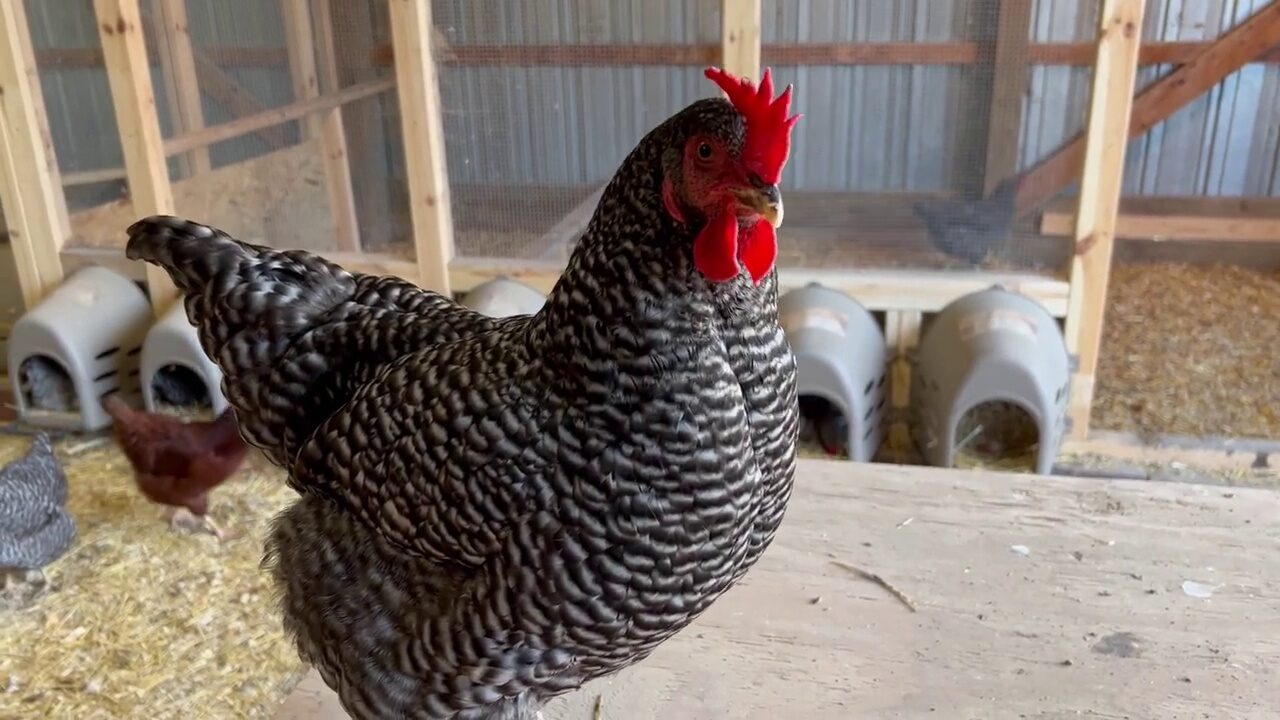Step into the world of poultry excellence with the Barred Rock Breed, where tradition, reliability, and expertise converge in the vibrant realm of backyard farming. As a seasoned poultry enthusiast or an eager newcomer, the Barred Rock Breed offers more than just visual appeal. Barred Rocks, with their distinctive black and white striped plumage, embody both elegance and practicality. Join us as we delve into the intricacies of the Barred Rock Breed, unraveling their unique traits, optimal care practices, and the unparalleled joy they bring to poultry farmers and enthusiasts alike.
Heritage: Barred Rocks in the Plymouth Rock Family
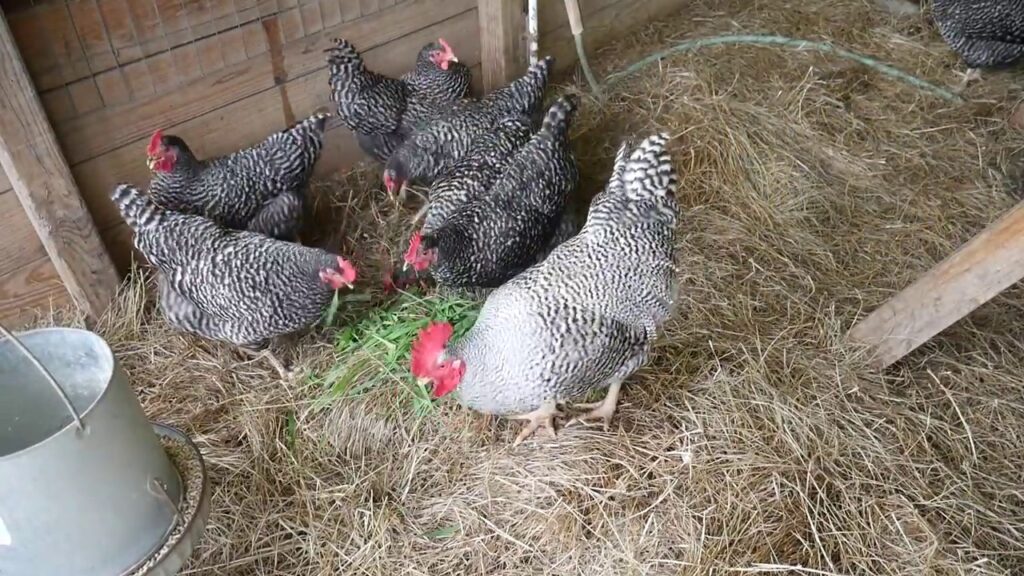
In the diverse world of Plymouth Rock chickens, Barred Rocks emerge as a distinct and cherished variety. Recognized for their classic black and white striped plumage, these chickens encapsulate the quintessential charm of the Plymouth Rock family. As a seasoned farmer, understanding that Barred Rocks are a unique expression within this heritage breed ensures an appreciation for their hardiness, dual-purpose attributes, and historical significance. These robust birds not only contribute to the aesthetics of your flock but also exemplify the practicality and versatility that Plymouth Rock chickens are celebrated for across the poultry farming community.
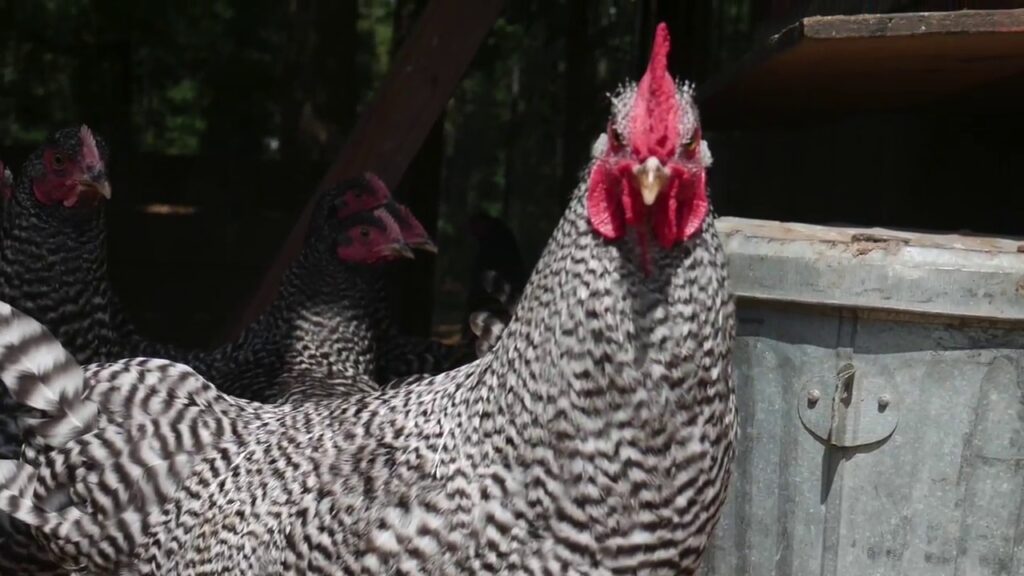
Embarking on the journey of raising Barred Rock chickens requires a strategic approach to ensure a thriving and productive flock. Here’s a concise guide, farmer to farmer:
Barred Rock Chicks
- Selecting Quality Chicks:
To build a strong Barred Rock flock, start with healthy chicks. Choose robust individuals from reputable breeders to establish a foundation for success. The first step in your poultry adventure is selecting healthy and vibrant chicks. Opt for lively, alert chicks with well-defined black and white markings. This careful selection lays the foundation for a thriving flock. - Optimal Brooding Conditions:
Creating a comfortable and secure environment is paramount for the well-being of your Barred Rock chicks. A spacious brooder with ample heat, proper ventilation, and a steady supply of fresh water and nutritious feed ensures optimal growth and development.
Provide a warm and secure brooding space with a consistent temperature of around 95°F for the first week. Gradually decrease by 5°F each week until the chicks feather out. - Balanced Nutrition:
Invest in high-quality chick starter feed to support the chicks’ rapid growth. Ensure a balanced diet for optimal health and development.
Barred Rock chicks have specific dietary requirements to reach their full potential. As a seasoned breeder, tailor their diet to include a balanced mix of high-quality chick starter feed, supplemented with essential vitamins and minerals. This meticulous nutrition plan sets the stage for robust and healthy chicks. - Space Planning for Growth:
As the chicks grow, allocate sufficient space in the coop. Barred Rocks are known for their medium to large size, so plan accordingly to prevent overcrowding. - Health Monitoring:
Vigilantly observe your Barred Rocks for signs of illness or distress. Early detection and prompt intervention are crucial for maintaining a robust and disease-resistant flock.
Regular health checks, vaccinations, and a hygienic living environment are pivotal in preventing diseases that could impact your Barred Rock chicks. Stay ahead of potential issues, and your flock will flourish. - Encouraging Natural Behaviors:
Design the coop with roosting spots and nests to encourage natural behaviors. Barred Rocks are active foragers, so provide opportunities for them to explore and scratch. - Egg Production and Collection:
Around 5-6 months of age, Barred Rock hens typically begin laying. Create a comfortable nesting area and collect eggs regularly to ensure cleanliness and prevent broodiness. - Socialization and Temperament:
Barred Rocks are known for their docile and friendly nature. Spend time socializing with your flock to strengthen the bond and create a calm environment.
mastering the Barred Rock Breed involves careful planning, attention to detail, and a genuine understanding of these remarkable birds. By following these steps, you’ll be well on your way to a successful and rewarding experience with your Barred Rock flock.
Caring for Barred Rock Eggs
In this comprehensive guide, we’ll explore the art and science of caring for Barred Rock eggs, ensuring a successful hatch and the emergence of robust, thriving chicks.
Barred Rock eggs, with their distinctive brown hue and potential for vibrant life, hold the key to the continuation of a proud lineage. As a skilled poultry farmer, your expertise in the intricacies of egg care is paramount.
-
Selecting and Collecting Eggs:
The journey begins with the careful selection and collection of eggs. Opt for eggs with a uniform color, free from cracks or irregularities. Handle them with gentle care, as their journey from nest to incubator sets the stage for a successful hatch. -
Creating the Ideal Incubation Environment:
Crafting the perfect incubation environment is an art that every adept breeder must master. Maintain a consistent temperature, proper humidity levels, and regular turning of the eggs. This mimics the natural nesting conditions and enhances the chances of a healthy hatch. - Egg Turning and Monitoring:
As the custodian of Barred Rock eggs, the chore of turning them at regular intervals is a crucial responsibility. This simple yet vital task prevents the embryos from sticking to the eggshell and ensures uniform development. Regular monitoring of temperature and humidity levels is equally imperative to avert any potential issues. - Understanding Egg Candling:
Egg candling is a skill that separates the expert breeders from the novices. Use a candling device to peer into the mysteries within. A practiced eye can discern signs of fertility, track embryonic development, and identify any potential problems. This insight allows for timely adjustments and interventions. - Optimal Nutrition for Egg Development:
Just as a healthy diet is essential for the growth of chicks, it is equally vital for the development of Barred Rock eggs. Ensure that breeding hens receive a well-balanced diet rich in essential nutrients, as this directly influences the quality of the eggs they produce. - Addressing Common Egg Issues:
No journey is without its challenges. Whether it’s dealing with thin-shelled eggs, irregularities in size, or fertility concerns, a seasoned breeder approaches each issue with a combination of knowledge and practical solutions. - Preparing for Hatch Day:
As the days progress, anticipation builds towards the much-awaited hatch day. Ensure that your hatchery is clean, warm, and equipped with the necessary tools for assisting chicks if needed. This preparedness reflects the hallmark of a diligent and caring breeder. - Welcoming the New Arrivals:
The culmination of your efforts arrives with the pitter-patter of tiny Barred Rock feet. Create a welcoming brooder environment, complete with warmth, proper nutrition, and ample space for the new arrivals to thrive.
Conclusion:
Caring for Barred Rock eggs is more than a duty; it’s a commitment to the legacy of poultry farming. By applying these expert strategies, you not only ensure the well-being of your eggs but also contribute to the flourishing lineage of Barred Rock chickens. May your journey be filled with successful hatches, lively peeps, and the satisfaction of a job well done.
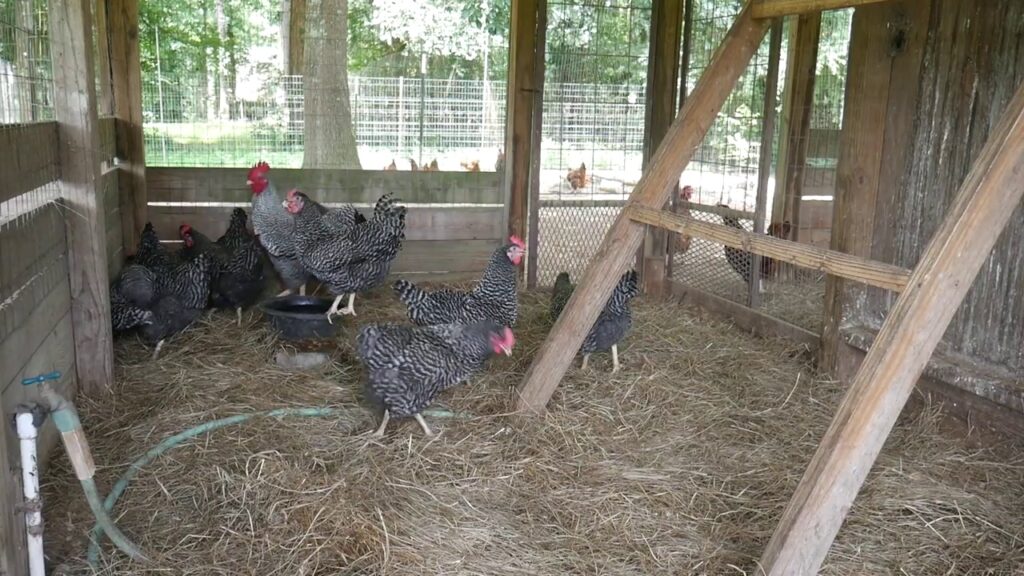
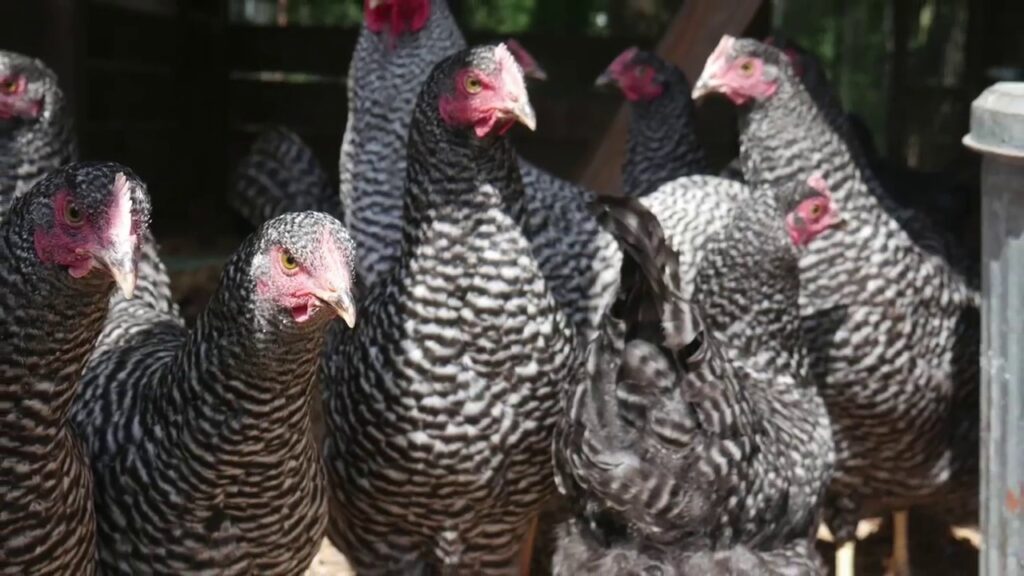
How Many Eggs Does a Barred Rock Lay?
As a seasoned poultry farmer, understanding the egg-laying habits of your flock is crucial for optimal management and productivity. Barred Rock hens, celebrated for their hardiness and prolific egg-laying capabilities, hold a special place in the hearts of poultry enthusiasts. In this in-depth guide, we’ll explore the fascinating world of Barred Rock eggs, answering the pivotal question: How many eggs does a Barred Rock lay?
For breeders and enthusiasts alike, gaining insights into their egg-laying patterns is key to maximizing the potential of these remarkable birds.
- Factors Influencing Egg Production:
Before delving into specific numbers, it’s essential to understand the factors that influence the egg-laying behavior of Barred Rock hens. Factors such as age, health, nutrition, environmental conditions, and daylight exposure all play integral roles in determining the quantity and quality of eggs laid. - Egg-Laying Potential by Age:
Barred Rock hens typically start laying eggs around 5 to 6 months of age. During their prime laying period, which spans from around 6 months to 2 years, you can expect peak egg production. However, the number of eggs laid may gradually decline as the hens age. - Peak Production Period:
In their prime, Barred Rock hens are known to lay approximately 4 to 6 eggs per week. This impressive output places them among the more prolific layers in the poultry world. The reliability and consistency of their egg-laying make them a favorite choice for both backyard and commercial poultry operations. - Environmental and Nutritional Considerations:
Creating an optimal environment and providing a well-balanced diet are paramount for maximizing egg production. Barred Rock hens thrive in comfortable, stress-free surroundings with access to quality feed and clean water. Adequate levels of calcium and other essential nutrients contribute to the development of strong and healthy eggshells. - Managing Egg-Laying During Seasonal Changes:
Understanding the impact of seasonal changes on egg production is crucial. Barred Rock hens, like many breeds, may experience fluctuations in egg-laying during shorter days and colder weather. Supplemental lighting in the coop can help mitigate the effects of reduced daylight hours, ensuring more consistent egg production throughout the year. - Egg-Laying Variability:
While the average egg production for Barred Rock hens falls within the 4 to 6 eggs per week range, individual hens may exhibit variability. Some may consistently lay at the upper end of the spectrum, while others might lay slightly fewer eggs. This variability is influenced by genetic factors, health, and the overall well-being of each hen. - Signs of Health Issues Impacting Egg Production:
Monitoring the health of your flock is crucial for sustained egg production. Signs of stress, disease, or nutritional deficiencies can impact egg-laying. Regular health checks, a balanced diet, and a clean living environment are essential for maintaining the well-being of your Barred Rock hens.
Barred Rock Hens
Barred Rock hens, with their distinctive black and white plumage, are a cherished staple in the world of poultry farming. As an adept breeder, your role in nurturing and managing these remarkable hens is crucial for a thriving and productive flock. In this extensive guide, we’ll explore the ins and outs of caring for Barred Rock hens, from selecting your flock to ensuring their well-being and productivity.
Barred Rock hens, also known as Plymouth Rock hens, are prized for their friendly nature, hardiness, and excellent egg-laying capabilities. As a seasoned poultry farmer, understanding the nuances of their care is essential for a successful and gratifying experience.
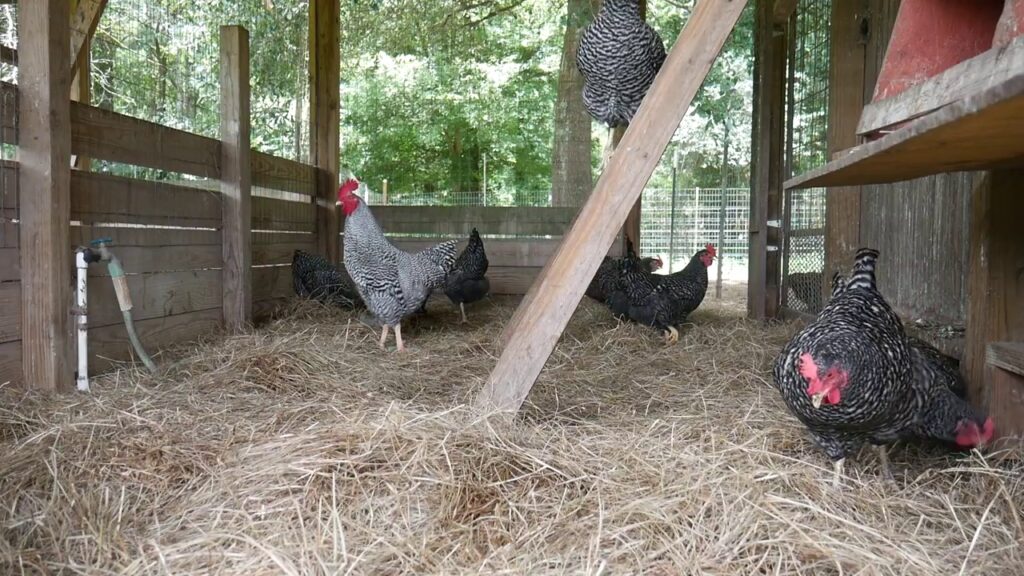
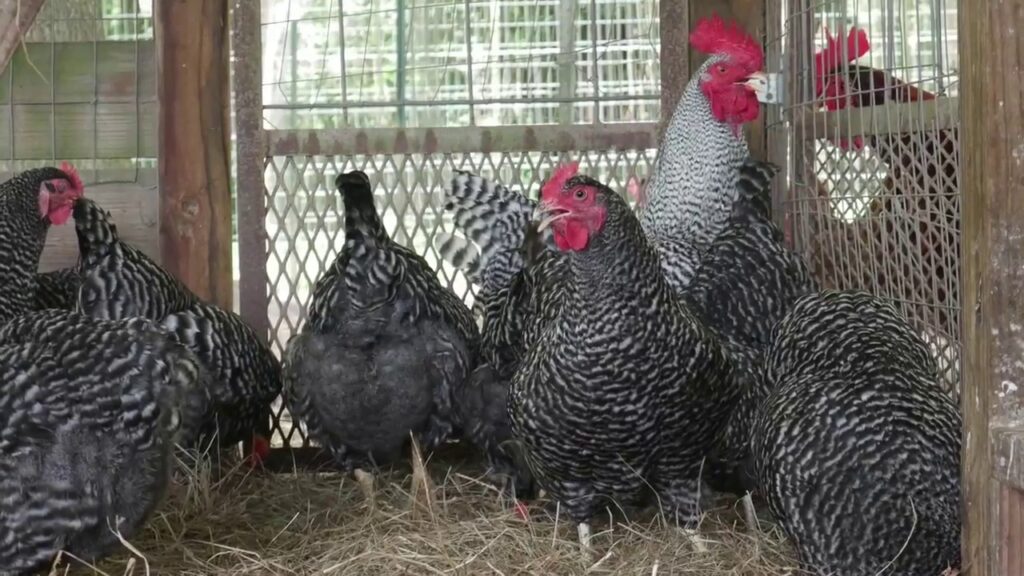
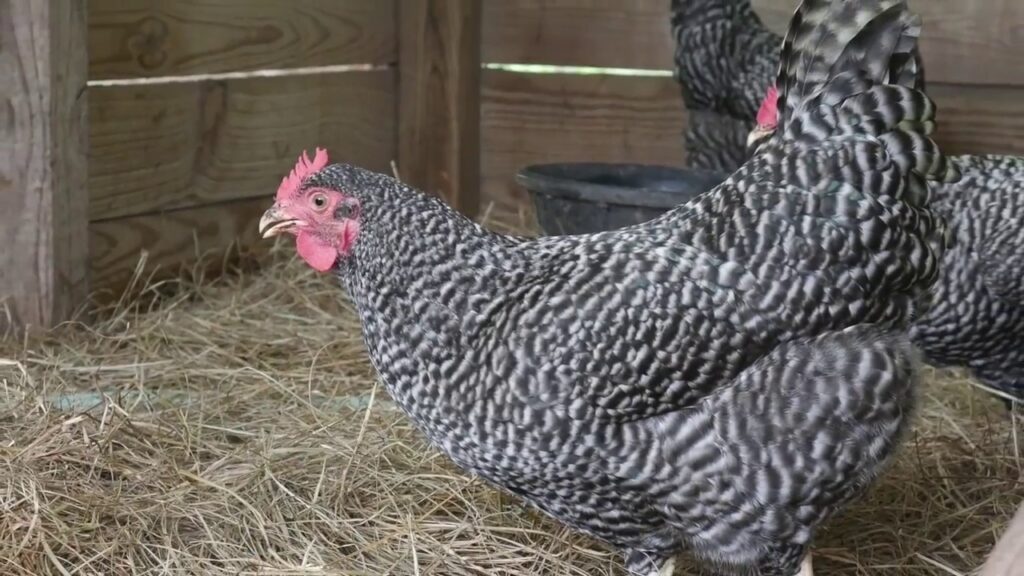
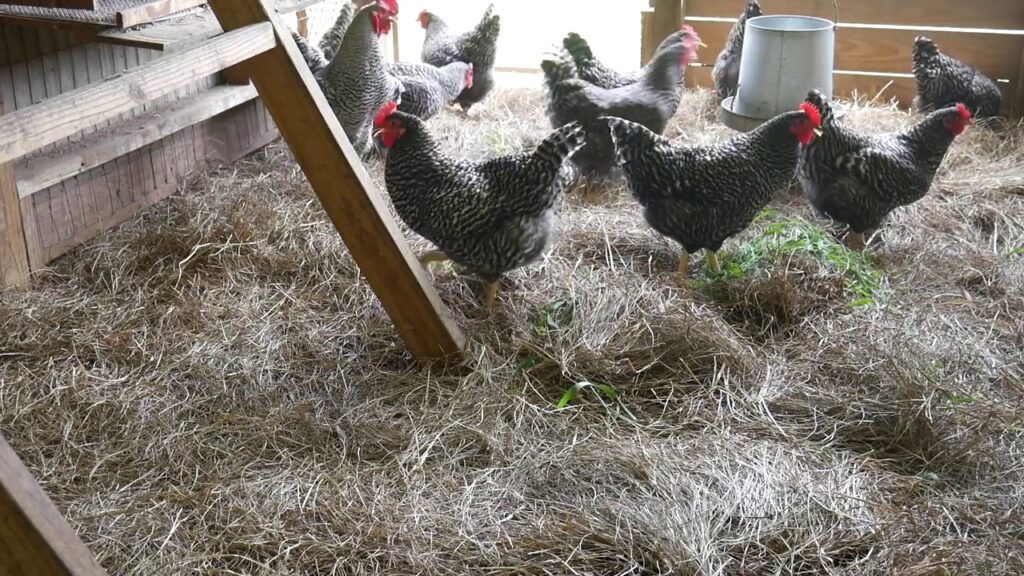
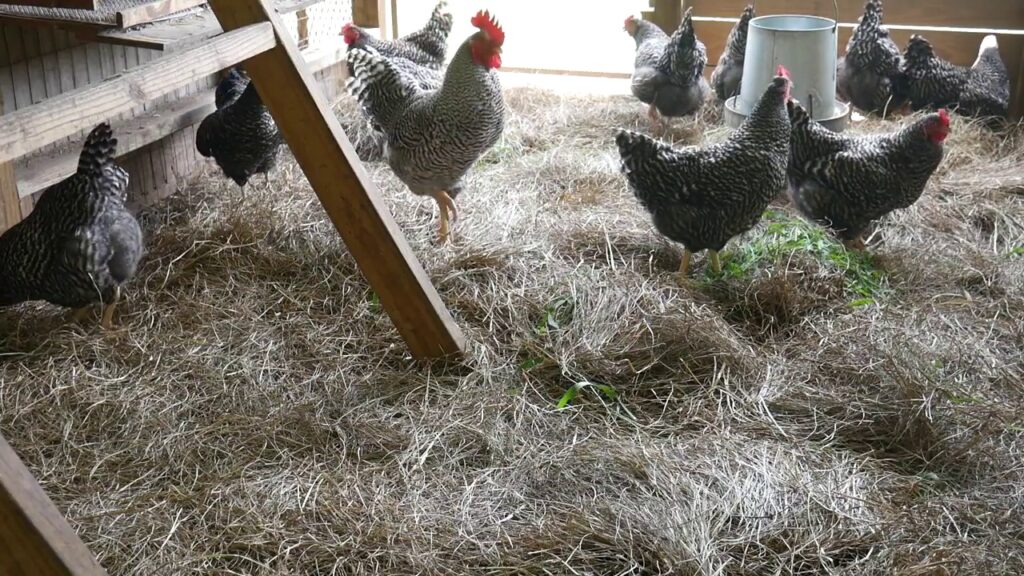
Choosing Your Barred Rock Hens:
The foundation of a successful flock begins with the selection of healthy and vibrant Barred Rock hens. Look for birds with well-defined black and white markings, bright eyes, and robust plumage. These traits indicate a strong and resilient hen ready to contribute to your flock.Raising Barred Rock hens is more than a farm chore; it’s a journey filled with the joy of nurturing vibrant and productive poultry. By implementing these expert strategies, you’re not just caring for hens; you’re fostering a legacy of excellence in poultry farming. May your Barred Rock flock thrive, producing healthy eggs and contributing to the rich tapestry of poultry farming success, like lavender buff orpingtons farm.
Pictures Barred Rock Chicken



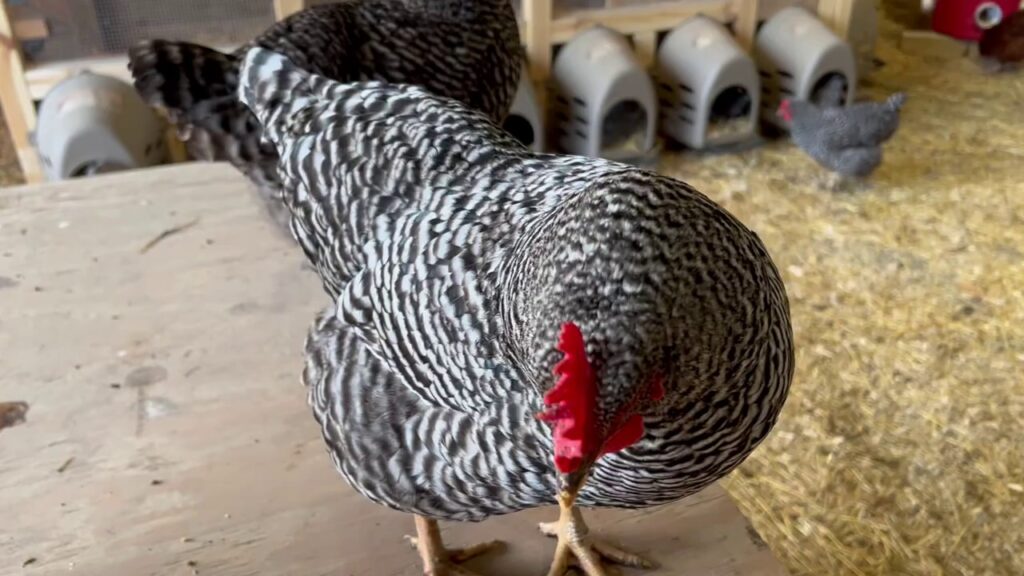












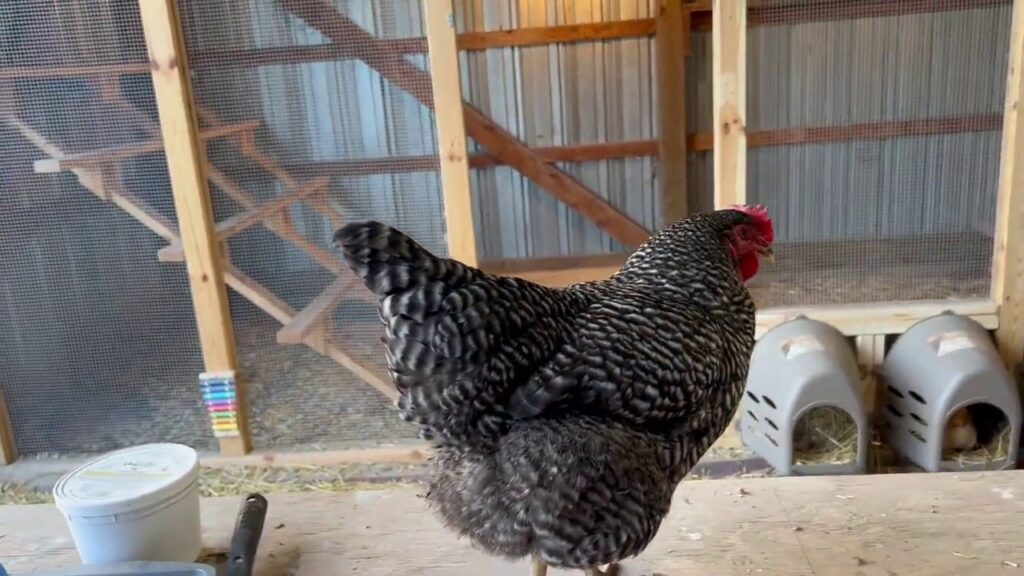

Author Profile

- a passionate poultry enthusiast with a deep love for chickens, has cultivated his affinity for avian companions since a young age.
Latest entries
 ChickensSeptember 14, 2023The Mystique Unveiled: A Guide to Ayam Cemani Chicken Egg
ChickensSeptember 14, 2023The Mystique Unveiled: A Guide to Ayam Cemani Chicken Egg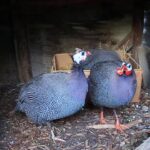 ChickensSeptember 11, 2023Understanding the Characteristics and Care of Guinea Fowl Eggs
ChickensSeptember 11, 2023Understanding the Characteristics and Care of Guinea Fowl Eggs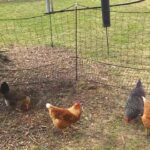 ChickensSeptember 3, 2023Fortify and Secure: A Guide to Fence in Chickens for Safe Flocks
ChickensSeptember 3, 2023Fortify and Secure: A Guide to Fence in Chickens for Safe Flocks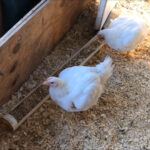 ChickensSeptember 1, 2023Discovering The Cornish Cross Chicken’s Secrets
ChickensSeptember 1, 2023Discovering The Cornish Cross Chicken’s Secrets
